What am I watching, lately?
Penny Dreadful
Since the cancellation of Hannibal, Penny Dreadful has been my favourite show. Now it’s ended, too, and I am living in a universe made out of sad.
What’s it about? A group of characters in the 1890s — some are recognizable characters
from Victorian (and pre-Victorian) fiction, including Dr. Frankenstein and Dorian Gray,
and others are unique creations, such as Vanessa Ives and Mr. Lyle — have bonded together to fight monsters. Not post-modern, broody monsters, but classic Victorian “separated from God”-style evil monsters. The first season is about vampires, and the second season is about witches, and then the third season returns to vampires. But there are some devils and werewolves and reanimated creatures thrown in along the way. There’s rather a lot of blood and rather a lot of sex, but I’m okay with that.
The show has a number of qualities that appeal to me. It’s dark, and intense. It has a writing style that I just find to be sublime. At times, I think I love it just because I enjoy watching
Vanessa Ives’ intense expressions. One of the things I particularly love is the show’s
willingness to take extended amounts of time just building a particular feel.
There’s a sequence at the end of the first episode of the second season that illustrates
this well. Vanessa, who is essentially the show’s long-suffering hero, is praying. The show
touches on religion frequently, and Vanessa’s faith is an important element of her
character: it’s really the only thing that gives her succour. But the scene cross-cuts
between Vanessa, and the second season’s primary villain, a satanic witch who is similarly
engaged in incantations. The two scenes cut back and forth, rising in intensity. It goes
on for minutes, an amazingly long time to take for a story beat that does absolutely
nothing to advance the plot. But it sets the mood. It’s just about setting the mood.
Over three seasons, the show built up some intense relationships. I loved some characters
more than others. Vanessa, obviously. Ferdinand Lyle. In the third season, I really liked
their treatment of Dr. Jekyll. I also went through a range of feelings about The Creature
(aka Caliban, aka John Clare). He’s consumed by hate and rage, and he makes choices that make him unlikable, but he’s also complex. We get a pretty good glimpse of his pain.
But, like so many other shows that I have loved, it’s gone, now. Supposedly, the show’s
creator only saw this story as having a limited life, but by the time of the ending, it
felt rushed and abbreviated. New characters were introduced late in the story that never
had time to grow. And some of the guns that Chekhov put on the wall never seemed to
have a chance to be fired. The ending felt more like a cancellation to me than a finish.
Stranger Things
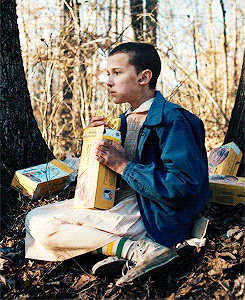 I didn’t think I’d be in to this show, but I was. Mostly, I developed major feels for Eleven and wanted to give her all the Eggos.
I didn’t think I’d be in to this show, but I was. Mostly, I developed major feels for Eleven and wanted to give her all the Eggos.
What’s it about? Someone took classic 80s movies like E.T., Firestarter, The Goonies, Stand by Me and maybe something by John Carpenter and threw those movies in a blender and hit “frappé.” The story takes place during the week of my birthday in 1983. Something monster-y has seemingly escaped from a government lab, and whatever it is has caused the disappearance of a boy in the sleepy town of Hawkins. There’s also Eleven, a mysterious, introverted/traumatized girl with special abilities who seems to know something about what’s happening. And there are kids who, faced with weird happenings, jump on their bikes with their walkie-talkies and go out to investigate.
Some of the appeal of the show is clearly nostalgia. They really succeed in making something that feels like the kind of movies we saw in the 80s, while being better-written. Stranger Things knows how to populate the show with classic 80s stock characters, while allowing those characters to stretch beyond their stereotypes: there’s the smarmy rich teen who might or might not just be trying to get in the pants of the scholastically successful teen girl; there’s the small town sherriff who by all accounts should be useless and should be a hindrance to the other characters, but who is instead smart and prepared to believe the characters who say that something is going on; only the shady government agents are completely 1-dimensional.
I also like that the show doesn’t try to go overboard with explaining what’s happening. We know there’s a monster. We know there’s a place (another dimension, or something?) dubbed the “Upside-Down” by Eleven. But what are those things? The show doesn’t feel the need to tell us. We know that they’re scary; that’s enough.
I read, on IO9, a suggestion that the show’s groups of characters are each inhabiting three different genres. The kids are having a kidventure; the teens are in a classic horror film; and the adults are in a government conspiracy thriller. That’s an interesting view on the show.
Dark Matter and Killjoys
I treat these two shows as SF candy. They’re not especially good, nor especially tautly-written. Partially, I like that the Syfy channel is doing shows with spaceships again.
Of the two, I think I favour Dark Matter, which manages to milk its premise for a lot of story ideas. Killjoys, by contrast, spends a lot of plot coupons doing worldbuilding and getting you to understand the politics of the area of space that it takes place in, but it’s hard to really care about much of it.
What are they about? Well, Dark Matter starts with six people and an Android waking up from stasis in a ship with no memories (not even knowing their names). They take to referring to each other as numbers — Two, Six, Four — according to the order they woke up in. Quickly, they learn that they’re the worst of the worst space scoundrels, all wanted on charges of theft, murder, and so forth. But they don’t remember being those people, so they’re not really motivated to return to those lives. Each character has their share of background mystery. Like too many shows, many of their problems could be solved if they’d actually open up to one another about the things that they start piecing together about their lives
Killjoys, on the other hand, is a story about a team of bounty hunters, or “reclamation agents” (in-universe, “Killjoy” is slang for bounty hunter). There are three principal team members: Dutch (a former trained assassin, who has a ton of back-story and shows signs of being some kind of special snowflake chosen one who is the only one who can save the universe), John (who is the kind, reasonable one with the technical aptitude; he also seems to be in a poly relationship with a local doctor, Pawter, and the ship AI, Lucy), and D’avin (John’s brother who John hasn’t seen since D’avin joined the army. D’avin is the big, tough, former soldier with no time to talk about his feelings). A certain amount of the show is basic “bounty hunter case of the week”, with an increasing amount of “trying to figure out some over-arching plot that keeps involving Dutch because of her past”.
Both shows are fun, but a bit simple.
Mr. Robot
I binge-watched the first season of this show, and enjoyed it. I’ve found, though, that watching season 2 week-by-week has felt like more of a slog.
What’s it about? Elliot, a brilliant hacker with a number of mental health issues and some drug dependencies, gets recruited by an older hacker, known only as Mr. Robot (a name that’s sewn onto his jacket) to join Anonymous fsociety, a hacker collective looking to take down a large corporation called E Corp (but often referred to as Evil Corp).
I enjoyed the realistic treatment of hacking, and I also liked watching Elliot grapple with the ethics of what he’s doing — actions that the show sufficiently problematizes. The show seems to lean on a few major plot twists that I thought were a bit obvious. I’m also starting to question how long this show can drag out its premise. I’m not sure how much longer I’m gonna give this show.
Supergirl
The DC/Arrowverse shows have mostly failed to keep my interest. I thought that, Arrow, at its highs, was quite average (I mean, seriously, if I was part of Team Arrow, I’d sit Oliver down and say, “No hemming and hawing; you need to tell us about everything that happened to you during the five years you were on the island, ’cause that stuff keeps coming back to haunt us”).
A lot of people seem to really like how fully comicky Flash allows itself to be (telepathic gorilla!). Me, I didn’t love Flash and I got tired of Arrow and I never even bothered with Legends of Tomorrow.
But I’m totally there for Supergirl. Which is weird for me, ’cause Supergirl is nowhere near as dark or moody as the stuff I usually like. It’s light, fun and nerdy. But it has more emotional depth than the other DC shows — Flash and Arrow are all about angst and man-pain, but Supergirl is about a hero wanting to live up to her aspirations.
I particularly enjoy the sisterly relationship between Kara and Alex. Their relationship is complex and fraught and yet loving. There’s a red kryptonite episode in which red-kryptonite-infected Supergirl is acting out and she levels a bunch of complaints at Alex, and toward the episode Kara is all, “I’m so sorry about the things I said,” and Alex is all, “Some of what you said had some truth to it, and that’s something I probably need to work on.” Usually when a show has a “this weird thing happened and now one of the characters is acting out” episode, everyone agrees to let everything reset at the end of the episode. I thought Supergirl made a bolder choice.
I’m also really into the feminist messages (it’s a bit feminist-lite, but still…). I like how the show constantly wrestles with the whole “living in the shadow to Supermen” while trying to break out from being considered an also-ran.
And, of course, Cat Grant — a character that has never been done well in any version of the Superman TV shows — is absolutely wonderful. I fully expected her to be the weakest link on the show, but she such a great character. I liked her quirks: her desk covered with rows of reading glasses, her inability to get Kara’s name right, and her constant obsession with image and media.
The Bridge (Bron/Broen)
I understand that this has been remade into both an American series (The Bridge) and a British series (The Tunnel), but the version I’ve seen is the original Swedish/Danish version.
What’s it about? A body is discovered on the Øresund Bridge, connecting Denmark and Sweden. As a result, the two countries work together to solve the crime. Sweden provides Saga Norén of the Malmö CID, an experienced, methodical and thorough detective who also displays some form of Asperger-like disorder. The Danish cop, Martin Rohde, is a bit older, experienced and fairly affable. Saga seems to like working with Martin because he isn’t thrown off by Saga’s blunt directness. Martin also offers suggestions to Saga about how to oil certain interactions, but does so in a way that doesn’t make it seem like he’s saying that Saga’s broken or damaged.
I confess that I wish I understood the differences between Swedish and Danish cultural identities better than I do, because I think a certain amount of the show has been about everyday culture clash.
I like the occasional cop procedural as a palette-cleanser from genre TV. But I think North American cop shows are usually terrible. I prefer European cop shows that are a bit more gritty, emphasize legwork and interrogation skills more, and often show the investigators are more flawed.
I mostly enjoyed The Bridge, but the one aspect that I found irritating was the way parts of the investigation were overly tied into the backstories of the cops. That whole “make it personal” writing device feels, to me, like it’s overdone. A French series, Witnesses, overused this. Even the British series, Happy Valley, which I quite enjoy, goes back to this well a bit more than I’d prefer.
Orphan Black
Siobhan and I recently finished watching season 4 of Orphan Black. I don’t love this series as much as many of my friends do, but there are many aspects of the show that I like: Maslany is obviously a virtuosa at creating different-seeming characters; several of the characters a absolutely delightful (if you’d told me in season 1 that Helena was going to be my favourite, I would not have believed you); I also like the theme of bodily autonomy, especially how it relates to bodies of the female Leda clones, to be important. My beef is with the writing: I feel like they’re winging it.
What’s it about? Sarah Manning, a street-smart woman with a bit of a con artist background stumbles upon the suicide of Beth Childs, a woman who happens to look just like her. Initially, she figures that this is a golden opportunity to empty out Beth’s bank accounts, but she quickly becomes enmeshed in a plot involving shady science labs and cloning. She learns that Beth looked just like her because Beth was a clone, as are several other characters that we get to know fairly well: soccer-mom Allison, evo-devo student Cosima, and scary lady Helena. And Krystal, who is thisclose to solving the great cosmetics conspiracy.
I’m glad to watch it, but it’ll never be a favourite.
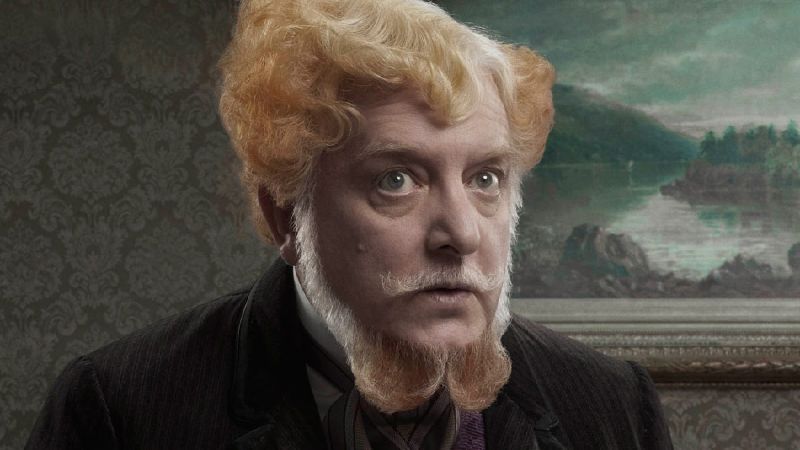
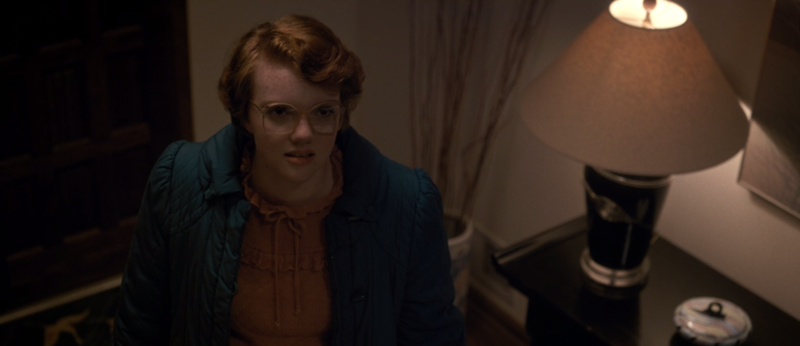
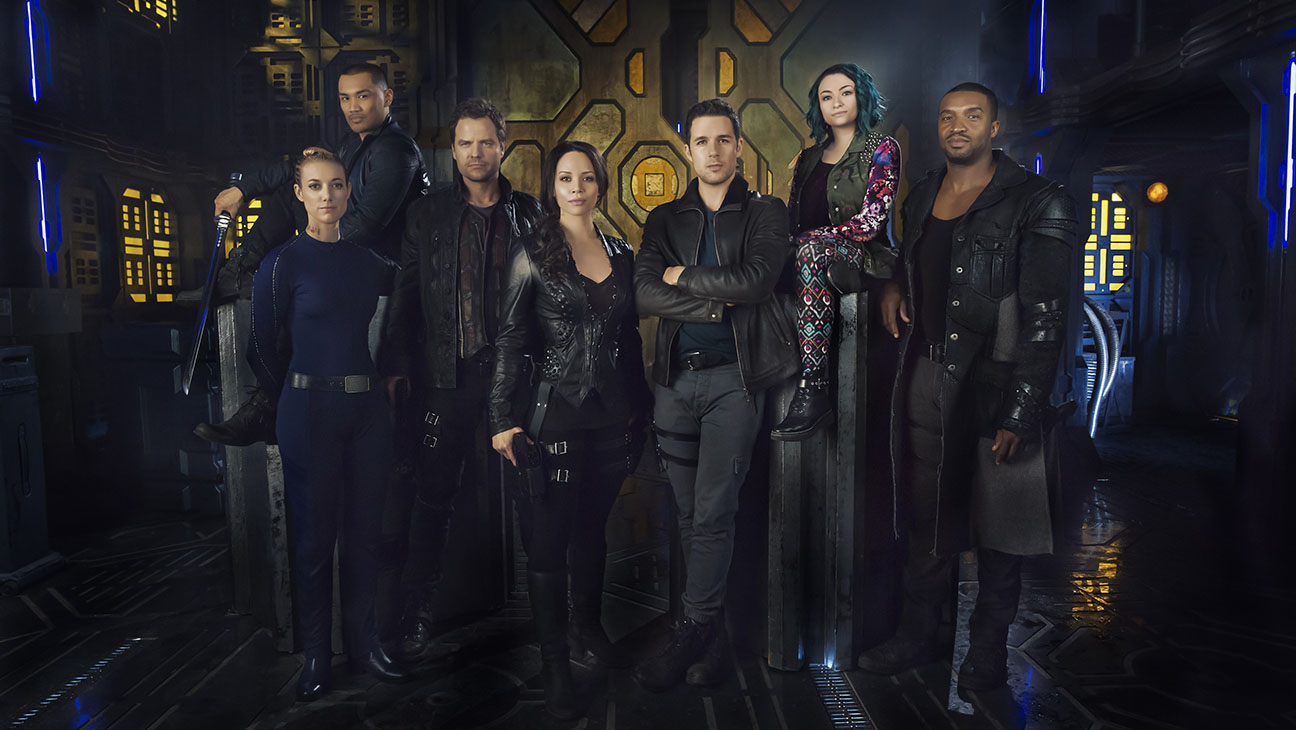
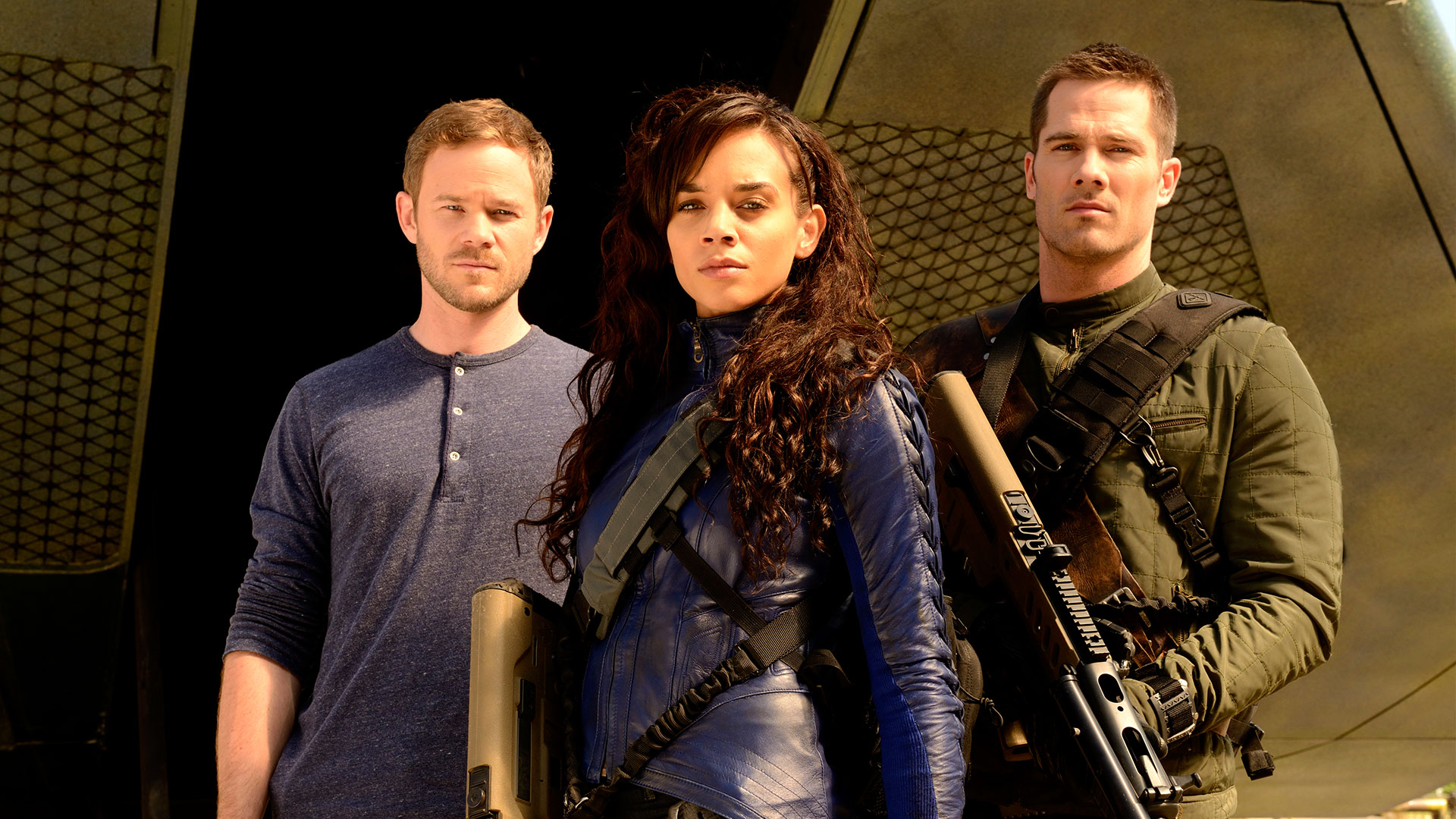
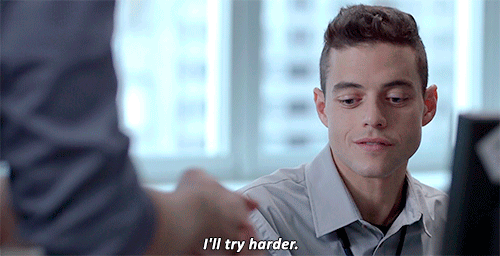
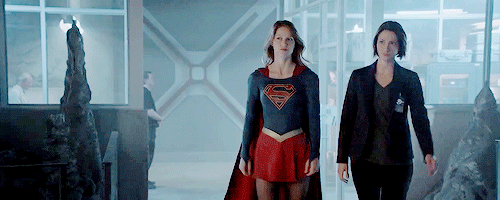
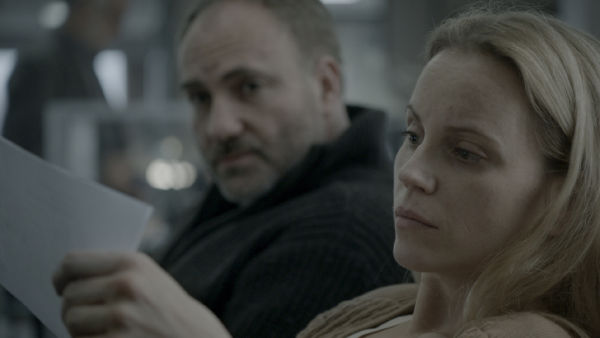
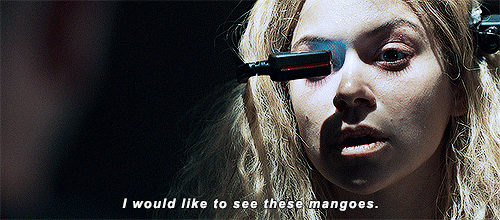

It seems like we are watching all the same stuff…Check out Bedrag, another Danish copper thingy whatsit. It is okay too.